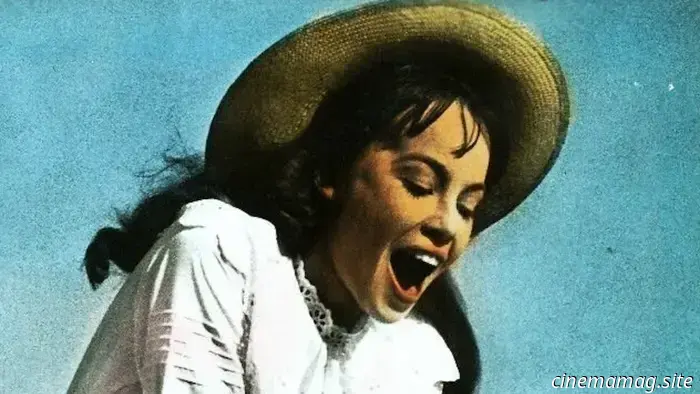
7 Oscar-Winning Best Picture Films That Couldn’t Be Made Today
Here are seven Oscar-winning Best Picture films that would likely not be produced in today’s Hollywood.
If you believe that a Donald Trump re-election would lead to Hollywood being less sensitive, you may not have experienced the last Trump Administration.
However, Before We Proceed: Some Clarifications
We’re not here to lament “cancel culture” or “wokeness,” nor to judge the past by today’s standards. Instead, we view films as reflections of their times and enjoy exploring how narratives are perceived differently across eras.
Many Best Picture winners may not be made today due to their directors being labeled as problematic, and we’re not considering those here. We also aren’t including exceptional films like Casablanca, which has some questionable aspects that don’t undermine the film’s overall message.
This list focuses on movies with inherent plot elements that are too controversial for cautious studio executives to accept. These elements are so essential that removing them would change the film entirely.
With that in mind, here are seven movies that likely wouldn’t be produced in today’s Hollywood, despite winning Best Picture Oscars when they were released.
Gigi (1958)
In today’s culture, which is highly aware of predatory grooming, a film like Gigi, which centers on a 16-year-old being groomed to become a courtesan, would face immediate rejection. Its main song, “Thank Heaven for Little Girls,” is something we can’t envision receiving approval from a major studio now.
Though Gigi is set at the turn of the 20th century, a time when the behaviors presented onscreen weren’t alarming, and debuted in the 1950s when teenage marriages were significantly more common, today it would be a definite non-starter.
Despite winning Best Picture and eight additional Oscars — and for a long time holding the record for the most nominations without defeat — Gigi stands at the forefront of films that today’s Hollywood executives would avoid.
Crash (2004)
Sometimes the films that age the worst are those that reflect on seemingly relevant or progressive themes, only to feel clichéd as societal norms evolve. Among the most cringeworthy are those conveying a simplistic “racism is bad” message, a lesson that should have long been ingrained in everyone.
Modern critics have expressed disdain for Crash; publications like the AV Club and Film Comment have labeled it the worst Best Picture winner, while IndieWire ranked it last among 21st-century Best Picture recipients.
Why the backlash against Crash? While it’s hard to pinpoint a single reason, the main critique is its clumsy redemption arc, where a white cop (Matt Dillon) rescues a Black driver (Thandiwe Newton) whom he previously assaulted. This is just one of many glaring issues within a movie filled with cartoonish plot turns.
Today’s executives would realize that critics — whether seasoned or social media arbiters — would be quick to pounce on a movie like Crash, effectively sealing its fate with regards to accolades.
Another Point of Clarification
Also, while it’s true that any of these films could technically be made today by a group of friends with an iPhone, they wouldn’t retain the same quality or impact without the backing of a major studio.
Now, let’s return to the list.
Gone With the Wind (1939)
Even if one overlooks the broad, stereotypical portrayals of Black characters (which is quite difficult, as parts of the film come across as cartoonish), Gone With the Wind urges viewers to nearly spend four hours sympathizing with Scarlett O’Hara, a woman who treats others as property.
There’s simply no way to make her relatable to modern audiences, despite her receiving poetic justice in the end.
One Flew Over the Cuckoo’s Nest (1975)
Many aspects of One Flew Over the Cuckoo’s Nest have aged well, particularly its anti-authoritarian themes that resonate universally.
However, one element that would be unacceptable in the post-#MeToo era is that protagonist Randle McMurphy (Jack Nicholson) is a statutory rapist of a 15-year-old girl, pretending to be insane to serve time in a mental hospital.
Considering McMurphy’s poor judgment regarding sexual boundaries, the portrayal of Nurse Ratched as the film’s main antagonist also takes on a problematic undercurrent. Interestingly, when Hollywood revisited this narrative with the Netflix series Ratched, she was portrayed as the protagonist (or at least an antihero) instead of the villain.
Driving Miss Daisy (1989)
In the early 1990s, rap group Public Enemy criticized the stereotypical, subservient roles of Black characters in their song “Burn Hollywood Burn,” targeting Driving Miss Daisy as a prime example, featuring Jessica Tandy as an affluent white woman and Morgan Freeman as her chauffeur, Hoke.
As she endures her frustrations, they forge a friendship, and she teaches him to read.
Alfred Uhry, the writer behind both the stage and screen













Other articles
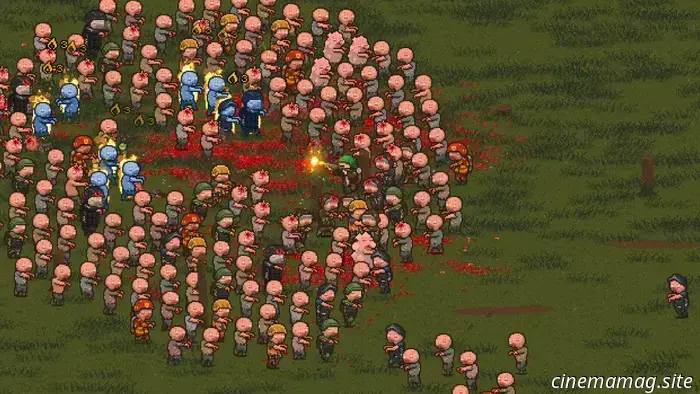 NO LIFE: Zombie Survivor reveals an intense gameplay trailer.
Developer VaragtP has unveiled a new teaser trailer for NO LIFE: Zombie Survivor, highlighting its intense gameplay. This forthcoming survival roguelite, set to launch on Steam, will have players battling against waves of zombies alongside their loyal canine companion. Check out the new trailer below…. In NO LIFE: Zombie Survivor, players will struggle for survival in procedurally generated […]
NO LIFE: Zombie Survivor reveals an intense gameplay trailer.
Developer VaragtP has unveiled a new teaser trailer for NO LIFE: Zombie Survivor, highlighting its intense gameplay. This forthcoming survival roguelite, set to launch on Steam, will have players battling against waves of zombies alongside their loyal canine companion. Check out the new trailer below…. In NO LIFE: Zombie Survivor, players will struggle for survival in procedurally generated […]
-Movie-Review.jpg) Karate Kid: Legends (2025) - Film Review
Karate Kid: Legends, 2025. Directed by Jonathan Entwistle. Featuring Ben Wang, Jackie Chan, Ralph Macchio, Joshua Jackson, Sadie Stanley, Ming-Na Wen, Aramis Knight, Wyatt Oleff, Shaunette Renée Wilson, David Robitaille, Tim Rozon, William Zabka, and Pat Morita. SYNOPSIS: Following the move of kung fu prodigy Li Fong to New York City, he draws unwanted attention from a […]
Karate Kid: Legends (2025) - Film Review
Karate Kid: Legends, 2025. Directed by Jonathan Entwistle. Featuring Ben Wang, Jackie Chan, Ralph Macchio, Joshua Jackson, Sadie Stanley, Ming-Na Wen, Aramis Knight, Wyatt Oleff, Shaunette Renée Wilson, David Robitaille, Tim Rozon, William Zabka, and Pat Morita. SYNOPSIS: Following the move of kung fu prodigy Li Fong to New York City, he draws unwanted attention from a […]
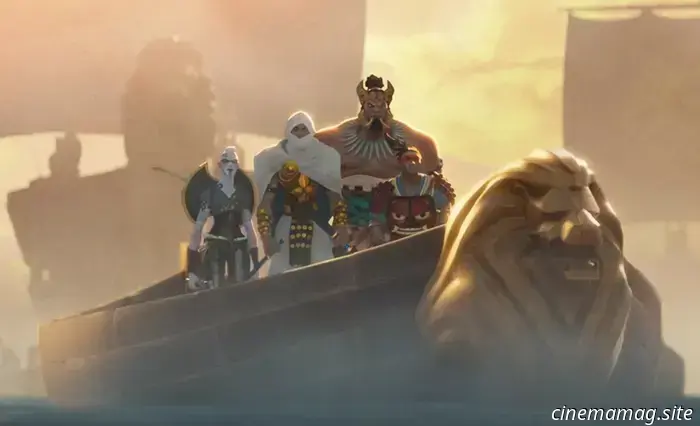 The first look at Marvel's animated series "Eyes of Wakanda" has been unveiled, with the showrunner hinting at a "Wakanda-grade James Bond" experience.
The much-anticipated Ironheart series is set to premiere on Disney+ next month, but it's not the sole Black Panther-related spinoff we can expect from Marvel Studios and executive producer Ryan Coogler this summer. Marvel's animation division is also launching its newest project, Eyes of Wakanda. This was unveiled in a first-look feature at Entertainment Weekly, where the [...]
The first look at Marvel's animated series "Eyes of Wakanda" has been unveiled, with the showrunner hinting at a "Wakanda-grade James Bond" experience.
The much-anticipated Ironheart series is set to premiere on Disney+ next month, but it's not the sole Black Panther-related spinoff we can expect from Marvel Studios and executive producer Ryan Coogler this summer. Marvel's animation division is also launching its newest project, Eyes of Wakanda. This was unveiled in a first-look feature at Entertainment Weekly, where the [...]
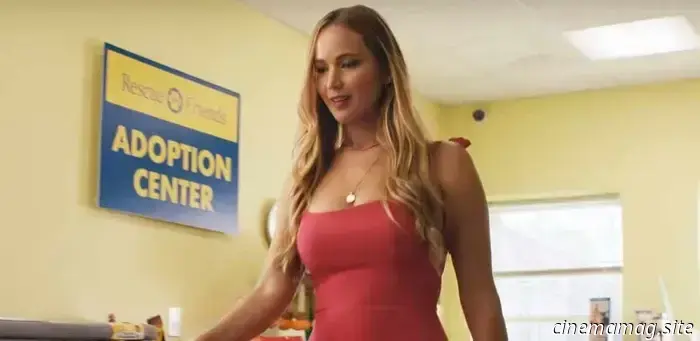 12 Remarkable Young Actors Who Achieved Success Without Family Ties
Here are 12 young actors who achieved success on their own merit — through hard work and an abundance of talent. No nepotism involved.
12 Remarkable Young Actors Who Achieved Success Without Family Ties
Here are 12 young actors who achieved success on their own merit — through hard work and an abundance of talent. No nepotism involved.
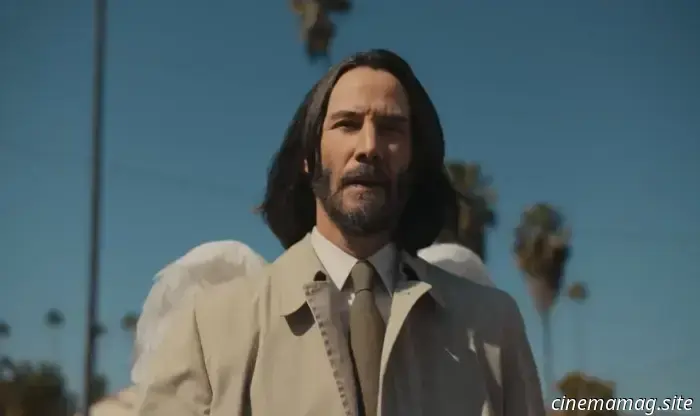 In the trailer for Aziz Ansari's Good Fortune, Keanu Reeves portrays a bungling angel.
Lionsgate has released a delightful first trailer for Aziz Ansari's Good Fortune, marking his debut as a director. In this film, Keanu Reeves portrays a clumsy angel who interferes in the lives of humans on Earth. With a script by and featuring Ansari (Master of None), Good Fortune also includes performances from Seth Rogen (The Studio), Keke Palmer (Nope), […]
In the trailer for Aziz Ansari's Good Fortune, Keanu Reeves portrays a bungling angel.
Lionsgate has released a delightful first trailer for Aziz Ansari's Good Fortune, marking his debut as a director. In this film, Keanu Reeves portrays a clumsy angel who interferes in the lives of humans on Earth. With a script by and featuring Ansari (Master of None), Good Fortune also includes performances from Seth Rogen (The Studio), Keke Palmer (Nope), […]
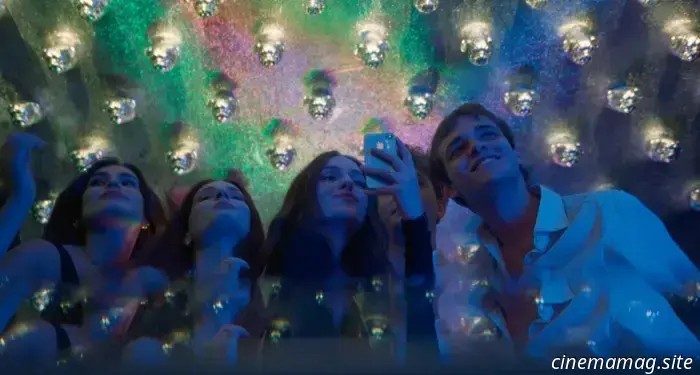 Diciannove Trailer: Venice Selection Produced by Luca Guadagnino Arrives in the U.S. This July
Although he remains active in directing with this year's After the Hunt, following last year's double release of Challengers and Queer, Luca Guadagnino is also contributing his producing skills to several projects. In addition to Dea Kulumbegashvili's April and the Sundance premiere Atropia, he has also supported Giovanni Tortorici's directorial debut Diciannove, which
Diciannove Trailer: Venice Selection Produced by Luca Guadagnino Arrives in the U.S. This July
Although he remains active in directing with this year's After the Hunt, following last year's double release of Challengers and Queer, Luca Guadagnino is also contributing his producing skills to several projects. In addition to Dea Kulumbegashvili's April and the Sundance premiere Atropia, he has also supported Giovanni Tortorici's directorial debut Diciannove, which
7 Oscar-Winning Best Picture Films That Couldn’t Be Made Today
Here are seven Best Picture-winning films that would likely not be produced in today's climate.
